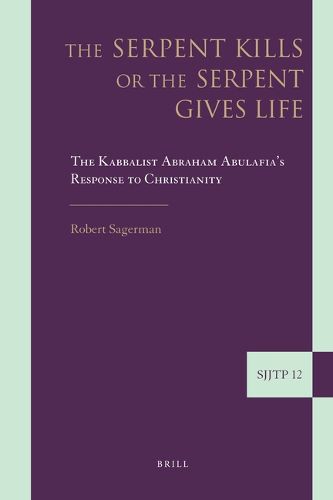Readings Newsletter
Become a Readings Member to make your shopping experience even easier.
Sign in or sign up for free!
You’re not far away from qualifying for FREE standard shipping within Australia
You’ve qualified for FREE standard shipping within Australia
The cart is loading…






Abraham Abulafia (1240 - c. 1291) founded an enormously influential branch of Jewish mysticism, referred to as the prophetic or ecstatic kabbalah. This book, from several perspectives, explores the impact of Christianity upon Abulafia. His copious writings evince an intense fascination with Christian themes, yet Abulafia’s frequent diatribes against Jesus and Christianity reveal him to be deeply conflicted in his relationship to his southern European religious neighbors. This book undertakes a careful study of Abulafia’s writings, suggesting that the recognition of an inner dynamic of attraction and revulsion toward the forbidden other provides a crucial key to understanding Abulafia’s mystical hermeneutic and his meditative practice. It also demonstrates that Abulafia’s uneasy relationship to Christianity shaped the very core of his mystical doctrine.
$9.00 standard shipping within Australia
FREE standard shipping within Australia for orders over $100.00
Express & International shipping calculated at checkout
Abraham Abulafia (1240 - c. 1291) founded an enormously influential branch of Jewish mysticism, referred to as the prophetic or ecstatic kabbalah. This book, from several perspectives, explores the impact of Christianity upon Abulafia. His copious writings evince an intense fascination with Christian themes, yet Abulafia’s frequent diatribes against Jesus and Christianity reveal him to be deeply conflicted in his relationship to his southern European religious neighbors. This book undertakes a careful study of Abulafia’s writings, suggesting that the recognition of an inner dynamic of attraction and revulsion toward the forbidden other provides a crucial key to understanding Abulafia’s mystical hermeneutic and his meditative practice. It also demonstrates that Abulafia’s uneasy relationship to Christianity shaped the very core of his mystical doctrine.